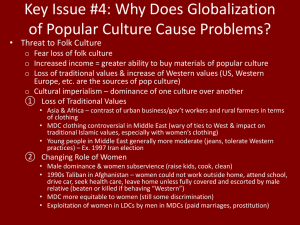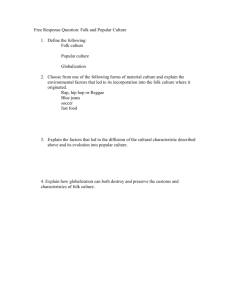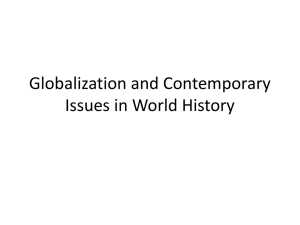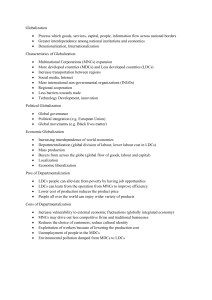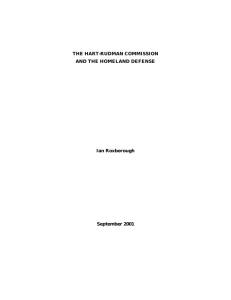Ch 4.4 Why does globalization of popular culture cause problems?
advertisement
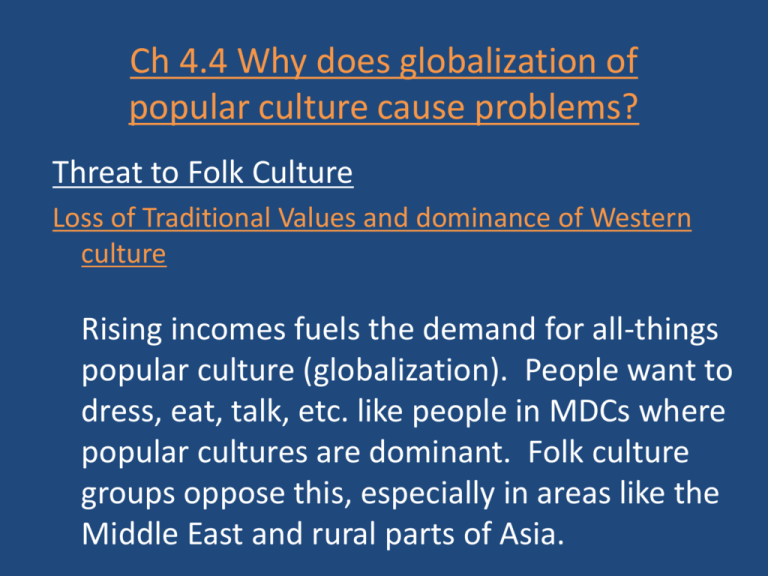
Ch 4.4 Why does globalization of popular culture cause problems? Threat to Folk Culture Loss of Traditional Values and dominance of Western culture Rising incomes fuels the demand for all-things popular culture (globalization). People want to dress, eat, talk, etc. like people in MDCs where popular cultures are dominant. Folk culture groups oppose this, especially in areas like the Middle East and rural parts of Asia. Ch 4.4 Why does globalization of popular culture cause problems? Threat to Folk Culture Loss of Traditional Values WOMEN Popular culture threatens the traditional roll of women in LDCs (where gender inequality is prominent) Muslim fundamentalists Taliban in Afghanistan – prohibit girls going to school, enforce strict modest dress . There is generally a low view of women held in traditional societies. This has also led to rape and human trafficking and forced prostitution, esp. in Asia. Ch 4.4 Why does globalization of popular culture cause problems? Threat of Foreign Media Imperialism LDCs feel their social customs are threatened (cultural imperialism) by USA media (American owned Associated Press (AP) and British owned Reuters) which promotes the social upward mobility & freedom for women LDCs can’t afford their own reporters so they rely on MDC reporters which they feel are Western-biased (check out Al-Jazeera news, a growing-in- popularity non-western media source). Ch 4.4 Why does globalization of popular culture cause problems? Environmental Impact of Popular Culture Modifies Nature “made to look “natural”: golf courses, lawns, hedges (“Over the Hedge” movie) Uniform Landscapes popular culture wants a uniform appearance to generate “product recognition” and “greater consumption” worldwide, makes global travelers feel comfortable (i.e. McDonalds!) (motels, gas stations, fast food restaurants) Ch 4.4 Why does globalization of popular culture cause problems? Environmental Impact of Popular Culture Negative Environmental Impact Increased demand for natural resources Increased meat consumption 90% less efficient than eating grain/vegetarian (10kg grain needed to produce 1 kg beef, 3kg grain needed to produce 1 kg chicken) Pollution solid waste – “packaging” bulk used in our “consumerism” We could do MUCH better with recycling
